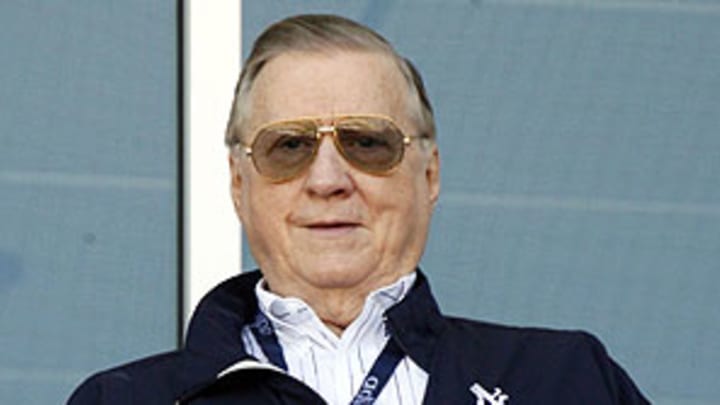Jack Craig flew under the radar, but left an indelible mark in sports


The tributes for George Steinbrenner -- at least in New York -- continue to roll on. Although I doubt there's much talk of this north of the Bronx or west of the Hudson River, Steinbrenner's death has even prompted rumblings that he, who was twice thrown out of baseball, should be inducted into Cooperstown. Hmm, a nice thought except Hall-of-Famer George Steinbrenner has the same ring to it to me as President Rudy Giuliani.
But despite the attention on Steinbrenner, I come to remember another sports personality who's death last week was so overshadowed by The Boss'. The deceased was named Jack Craig, and although you've almost surely never heard of him, he was exceptionally good at what he did. But when he started doing what he did is what seems so amazing now.
Jack Craig was the first critic of sports television.
Late in 1967, Craig's editor at the Boston Globe, Ernie Roberts, pulled him off the copy desk and simply told him to watch sports on television and write about them. Imagine. Already television was reordering the entire sports galaxy, but it had never occurred to any editor to have someone specialize in writing about it. In a way, Craig's appointment was the ultimate certification that the presentation of sports as entertainment was as important in our culture as comedy and drama
Incredibly, though, even as more people watched sports on TV and talked about sports on TV -- and even made Howard Cosell the preeminent voice of the land -- other print outlets were slow to follow in Craig's path. Soon, he was not only covering sports television for the Globe, but also, for the weekly national paper, The Sporting News; and, under a pseudonym, for Sports Illustrated, as well. It was as if the same critic was reviewing Broadway for The New York Times, Variety and The New Yorker.
Today, of course, in most major newspapers, the sports TV beat is as obligatory as the betting line. In fact, often the best writer in the sports section is the TV writer. Unlike the legendary columnist, who has to work stadiums and arenas, spend hours in press boxes, and then trudge down to the locker room and try to squeeze an unintelligible quote out of a surly naked athlete, the sports TV guy can just sit on his couch with a clicker in his hand and a disc on his roof and watch stuff right there in his own man cave.
Readers relate to TV sports guys, too, because they're just like them, so the sports television writer is invariably popular, unlike other critics who are looked upon as crabby sourpusses.
It seems impossible to believe that there was ever a time before Jack Craig. It might even be possible to say that sports television is more important than ... sports. When George Steinbrenner died, the Yankee franchise that he had purchased 43 years ago was estimated to be worth $1.6 billion. The Yankee television network that he started hardly eight years ago was estimated to be worth twice that -- $3 billion.
